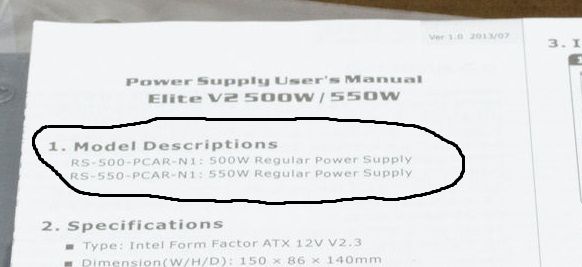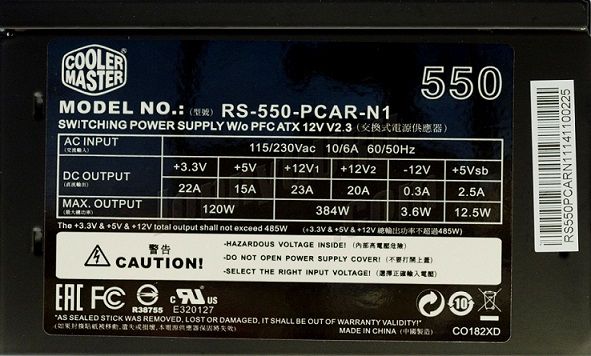The label is what they go by. The label is what a reviewer should go by.
I agree 100% Jon.
As I posted on our site, we've ordered a second unit so that I can test it here and see what that outcome is. I plan to match OW's original numbers to ensure I'm getting equal performance, and then I will bump it up to hit the 550W mark and see what the end result is. Will the review be revised? The new testing data will be added to the review. Of course we have to wait and see what the results are before we can make the call on if it warrants altering the conclusion and scoring.
I wanted to make a comment in regards to pushing the PSU's past their rated labels. Some units can do more than their label claims, and some can't even come close. Everytime we connect a PSU to our equipment, we are gambling with something going wrong. I'm not speaking for all of us reviewers because I don't know everyone elses position. I have a feeling that part of the reason OW doesn't push things past their rated specs is because it would make him feel responsible if he blew up a tester he doesn't own. It's kind of like borrowing your best buds car. You take it out for a night on the town and romp it one time to hard. The motor BLOWS and you're left sitting there with a lump in your throat knowing you have to call your buddy up and tell him you just popped his motor. Generally I would like to think we (as a friend) would take better care of a borrowed item than we would our own item. I know this isn't the case in most situations, but there are still people out there that still care.
![[H]ard|Forum](/styles/hardforum/xenforo/logo_dark.png)


